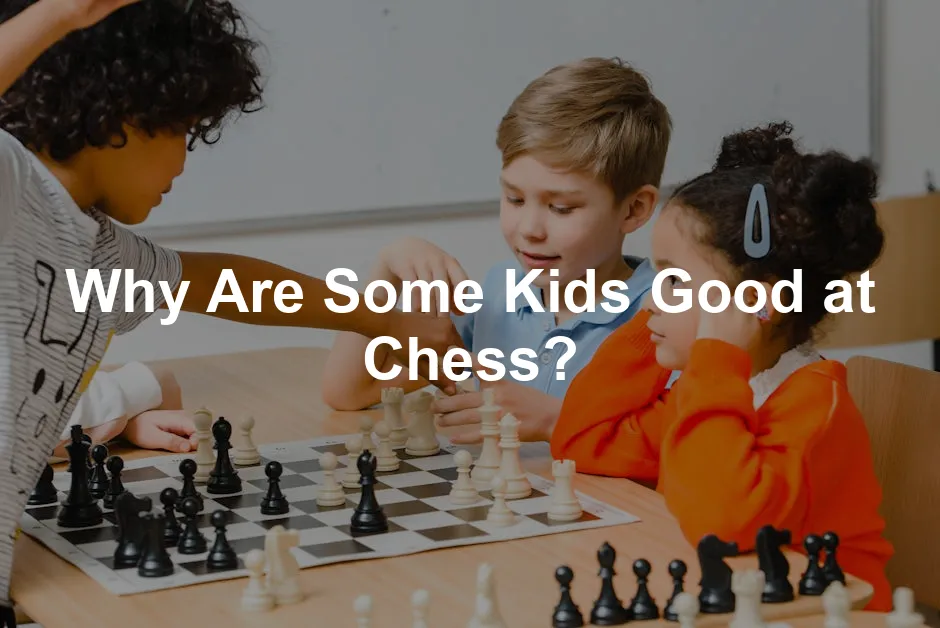
Why Are Some Kids Good at Chess?
Introduction
Chess is gaining popularity among children everywhere. Many are captivated by the stories of child prodigies mastering the game. But what makes some kids excel at chess? Let’s look at cognitive abilities and environmental factors that play a role in their success.
If your little one is just starting, consider getting them a Chess Set for Kids. These sets are not only fun but designed with colorful pieces that make learning the game a delightful experience!
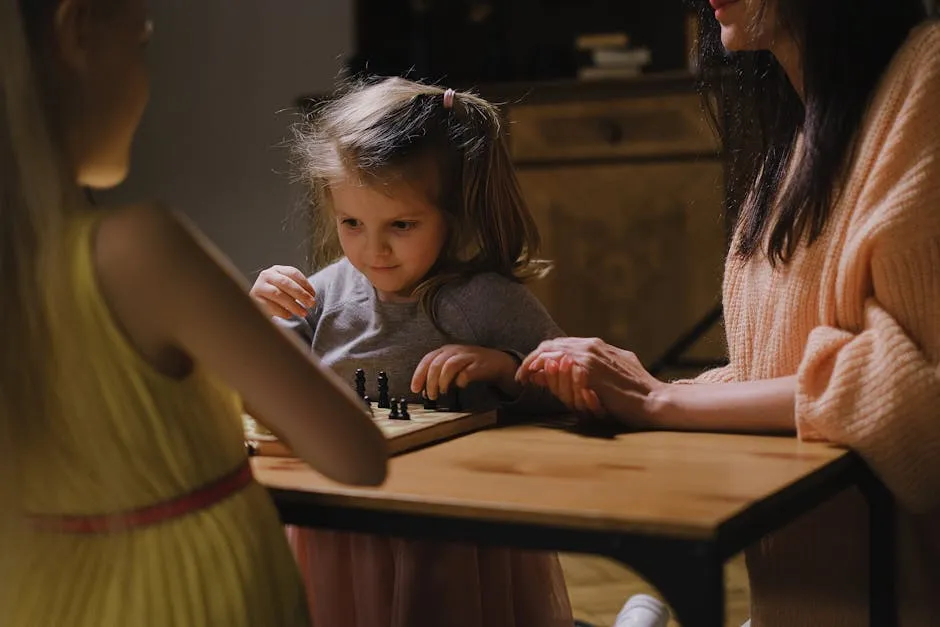
Summary and Overview
Several key factors contribute to why some kids shine in chess. First, early exposure to the game provides a solid foundation. Kids who start young often develop better strategic thinking skills. Research shows that children who play chess can improve their IQ and critical thinking abilities significantly.
Cognitive development is another crucial aspect. Chess enhances problem-solving skills and fosters creativity. Studies indicate that playing chess helps improve memory and concentration, leading to better academic performance. For those looking to deepen their knowledge, diving into Chess Books for Beginners can provide essential insights and strategies.
Lastly, the environment plays a vital role. Supportive families and access to resources, like coaching, can significantly impact a child’s chess journey. These factors not only enhance chess skills but also contribute to overall development. Reflect on your own experiences with chess and how they shaped your understanding of the game.
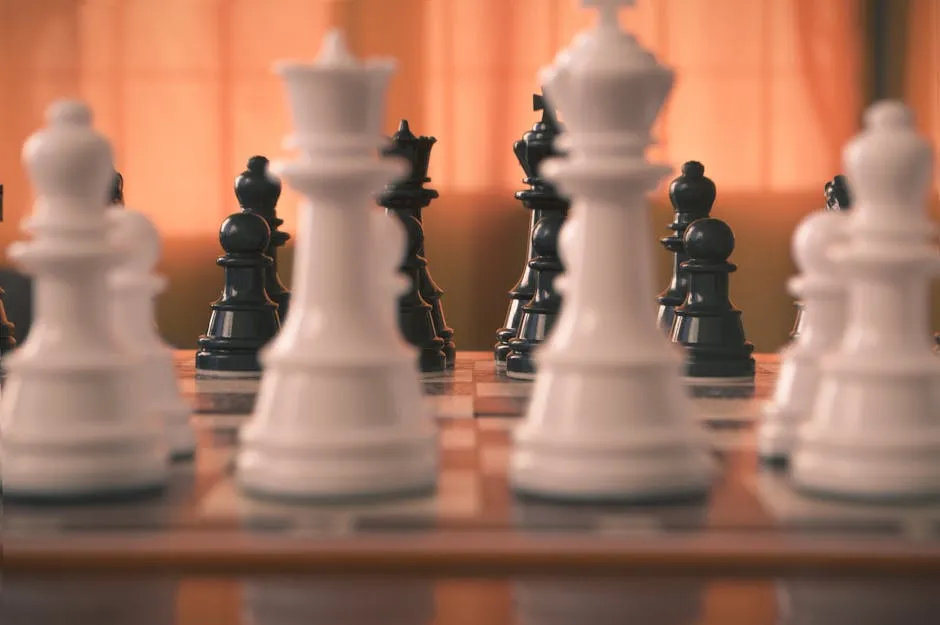
The Cognitive Benefits of Chess
Enhanced Critical Thinking Skills
Chess is more than just a game; it’s a powerful tool for developing critical thinking. Playing chess sharpens logical reasoning and enhances problem-solving abilities. When you engage in chess, you constantly analyze positions and evaluate potential moves. This process fosters pattern recognition, which allows children to identify strategies and anticipate their opponent’s actions. To practice these skills, consider a Chess Tactics for Kids book!
Research supports this. Studies show that children who play chess exhibit significant improvements in IQ scores. They develop better strategic planning, essential in both chess and real-life situations. This skill translates into academic success, as kids learn to approach problems methodically. With these enhanced critical thinking skills, children become more adept at making decisions, both on and off the board.
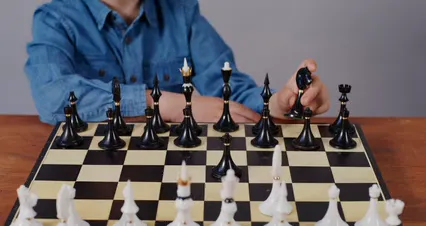
Memory Improvement
Chess requires players to memorize various strategies and moves, significantly boosting memory retention. As kids learn different openings and tactics, they develop strong cognitive skills. This memorization exercise benefits their academic performance, as improved memory can help them retain information better in subjects like math and science. If your child is a chess enthusiast, a Chess Notation Book could be a handy tool to track their progress!
Research indicates that chess players often have superior memory skills compared to their peers. One study found that children who play chess regularly demonstrate a marked improvement in their ability to recall information. This enhancement in memory not only aids in academics but also builds a foundation for lifelong learning. By improving memory skills through chess, children gain tools that will serve them well throughout their educational journey.
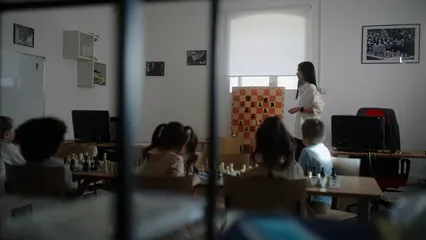
The Role of Early Exposure
Importance of Starting Young
Introducing chess at an early age can lead to impressive mastery. Children’s brains are highly adaptable, benefiting from a phenomenon known as neural plasticity. This adaptability allows them to absorb new information quickly. Take famous young grandmasters like Magnus Carlsen, who became a grandmaster at just 13. His early experiences laid a strong foundation for his later success. Similarly, Bobby Fischer learned chess at age six and reached grandmaster status by 15. Such cases highlight how early chess education can significantly enhance a child’s cognitive abilities, setting them on a path to excellence.
Statistics reveal that many chess prodigies began playing before the age of seven. Early exposure not only boosts their skills but also fosters a lifelong love for the game. It’s clear that starting young plays a crucial role in developing exceptional chess players. For those looking to enhance their skills, a Chess Puzzle Book can be an excellent resource!
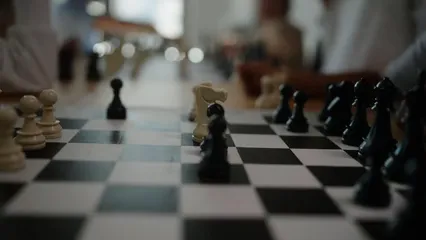
Long-term Engagement in Chess
Sustained engagement in chess from a young age carries numerous benefits. Children who consistently play chess tend to experience continuous learning. This ongoing practice sharpens their skills and keeps their interest alive. Community involvement also plays a role. Kids can join clubs or attend tournaments, fostering a sense of belonging and camaraderie with fellow players.
Research supports a correlation between prolonged engagement and skill level. Kids actively participating in chess activities often show significant improvement in their game. A study indicated that chess players who played regularly had higher ratings compared to their less active peers. The combination of continuous learning and community support nurtures not just chess skills, but also important social skills, creating well-rounded individuals. If your child is serious about improving their game, consider investing in Chess Training Software to enhance their skills!

Environmental Factors
Supportive Family and Social Environment
Family support plays a crucial role in a child’s chess journey. When parents actively encourage their children, it boosts their confidence. This encouragement often manifests through praise and active involvement in their chess activities. For instance, attending tournaments together can create lasting memories and a love for the game.
Access to resources also matters. Parents who provide books, online tutorials, or coaching can significantly enhance a child’s skills. Surveys show that children whose parents are involved in chess tend to perform better. In fact, a study found that 78% of children reported improved chess skills due to parental support. This support lays a strong foundation, making chess not just a game but a shared family experience. If you’re looking for a fun way to engage as a family, consider Educational Board Games that can complement your chess sessions!
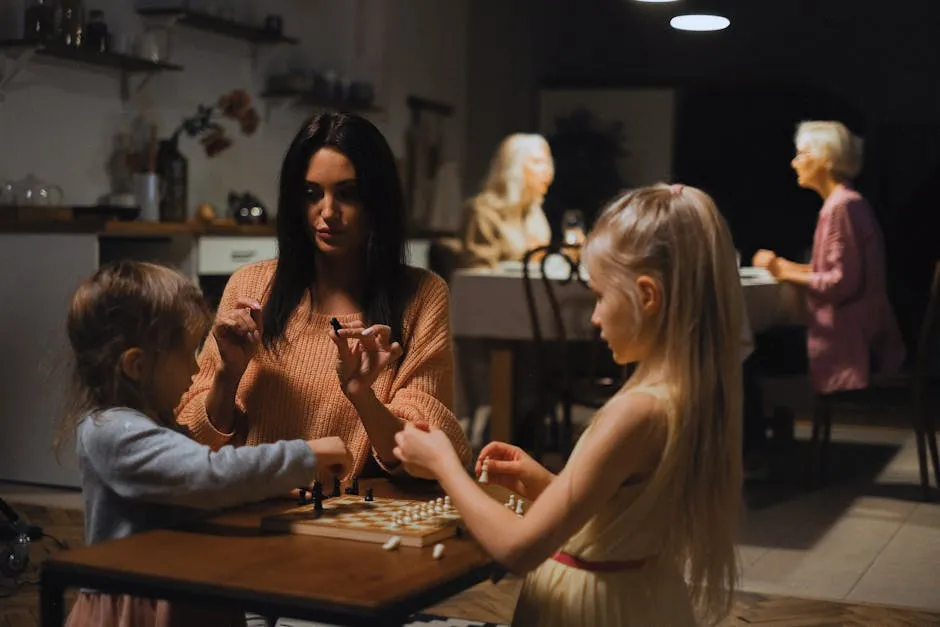
Access to Training and Resources
Access to training and resources is essential for young chess players. Chess clubs and educational programs offer structured learning environments. They provide children with opportunities to learn from experienced coaches. This guidance can accelerate skill development significantly. A Chess Clock is also a great tool to help kids learn time management during their games!
Community chess events further contribute to a child’s growth. These gatherings allow kids to play against peers, fostering friendly competition. Research indicates that schools incorporating chess programs see a marked increase in student performance. In recent years, the number of school chess programs has grown by over 30%. This trend highlights the importance of making chess accessible, ensuring that every child can enjoy and benefit from this strategic game.
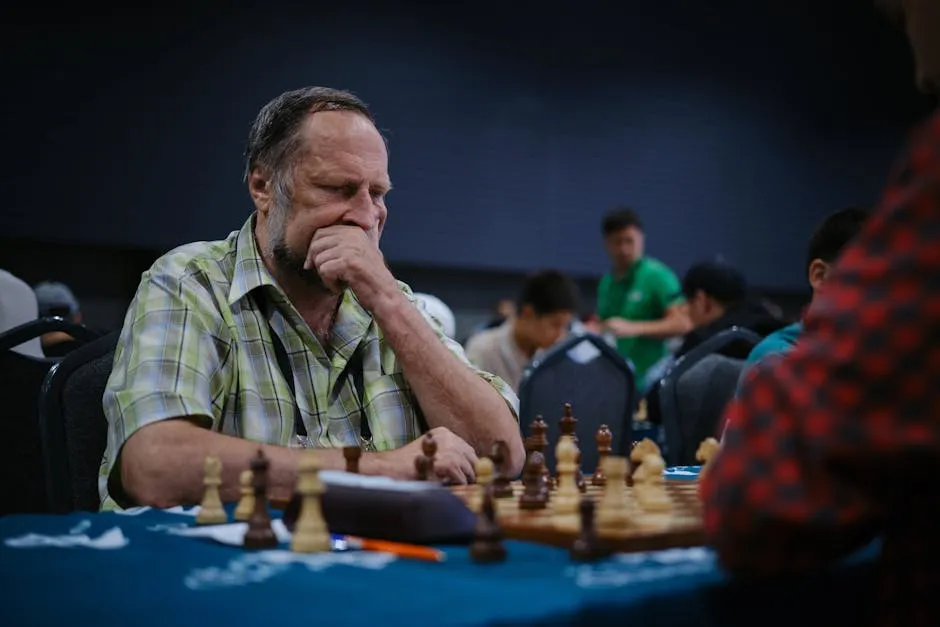
Understanding how environmental factors can contribute to children’s success in chess is essential for fostering their growth.
Psychological Aspects
The Role of Motivation and Passion
Motivation plays a crucial role in chess success for kids. When children genuinely enjoy the game, their learning and performance improve significantly. Intrinsic motivation fosters a love for chess that goes beyond mere competition. Research shows that kids who engage in enjoyable activities are more likely to excel. They set personal goals, whether it’s mastering a specific opening or winning a local tournament. This sense of purpose drives them to practice and improve.
A study on youth sports revealed that motivated children often perform better than their peers. Their passion for chess can lead to higher levels of participation and achievement. When kids feel excited about their progress, they’re more likely to stay committed to the game, enhancing their skills over time. To keep that excitement alive, why not introduce them to Chess-themed Apparel that showcases their love for the game?
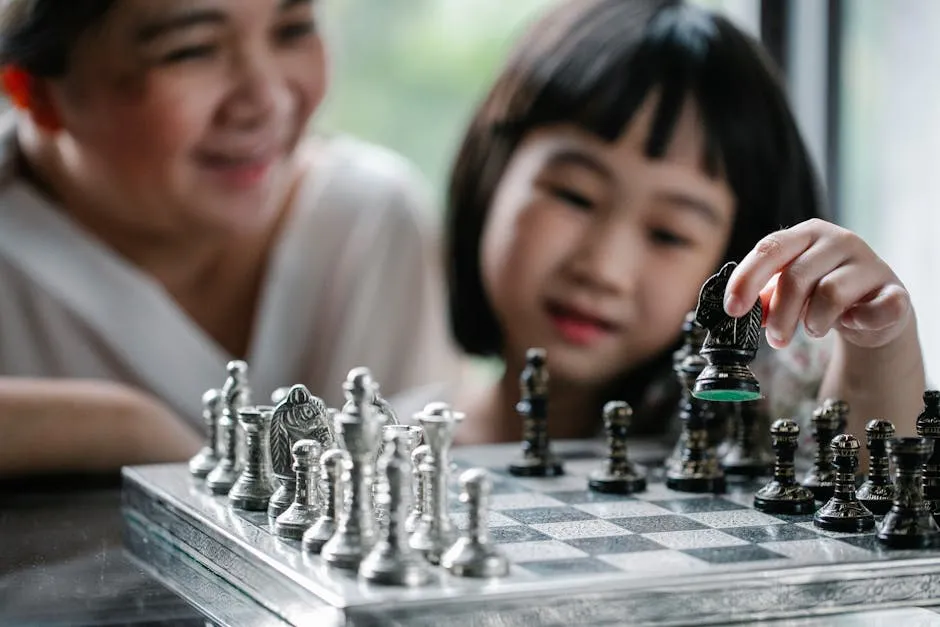
Handling Pressure and Competition
Competing in chess can be intense, especially for young players. However, kids who learn to manage pressure often thrive in competitive situations. Stress management techniques are vital for help them cope when facing tough opponents. They learn to stay calm and focused, which can improve their overall performance.
Resilience is another key factor. After a loss, children who can bounce back quickly tend to grow stronger in their abilities. Research shows that young athletes who view setbacks as learning experiences develop a growth mindset. This perspective allows them to see failures as opportunities to improve rather than reasons to quit. In chess, this resilience becomes invaluable, helping kids embrace challenges and continue their journey in the game. To celebrate their achievements, consider gifting them Chess-themed Mugs that they can use while pondering their next moves!
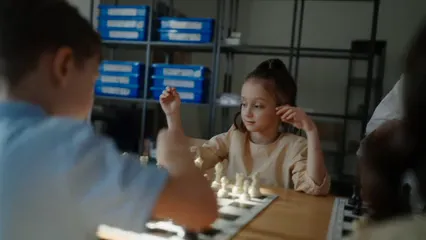
Conclusion
Several factors contribute to why some kids excel at chess. Psychological aspects like motivation and resilience are fundamental. When children enjoy the game and set personal goals, they develop a deeper connection to chess. Additionally, supportive environments nurture their growth. Parents and educators can play a significant role in fostering this passion. Chess can serve as an effective tool for cognitive development, with benefits that extend beyond the board. Encourage children to engage in chess, as it promotes essential life skills and overall well-being. If you’re looking for a unique gift for a chess lover, Chess-themed Wall Art makes a great addition to any room!
Please let us know what you think about our content by leaving a comment down below!
Thank you for reading till here 🙂
All images from Pexels




